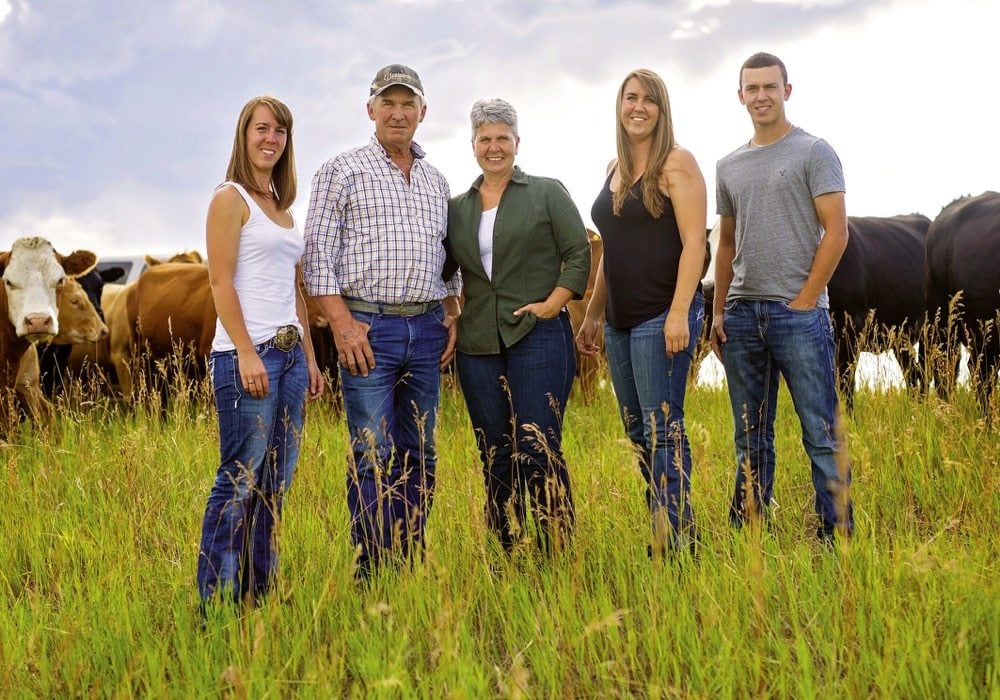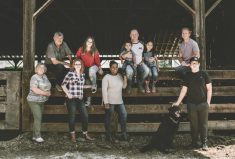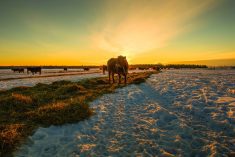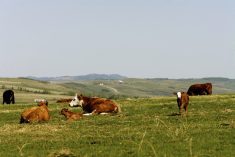Brothers and sisters are working together on more farms all the time. More and more too, there are multiple siblings on these farms, not just one of each.
To outsiders, it can seem like so many more chances for family to get in the way, and so many chances for old rivalries to flare up.
On the inside, though, it means so many more chances for some really amazing success stories.
For our March 27, 2018 issue of Country Guide, we talked to brothers and sisters in two such farming operations, and in both cases we found they’ve learned as they’ve grown. Today they say that farming as brother and sister is just something they do. But can it ever really be that simple?
Read Also
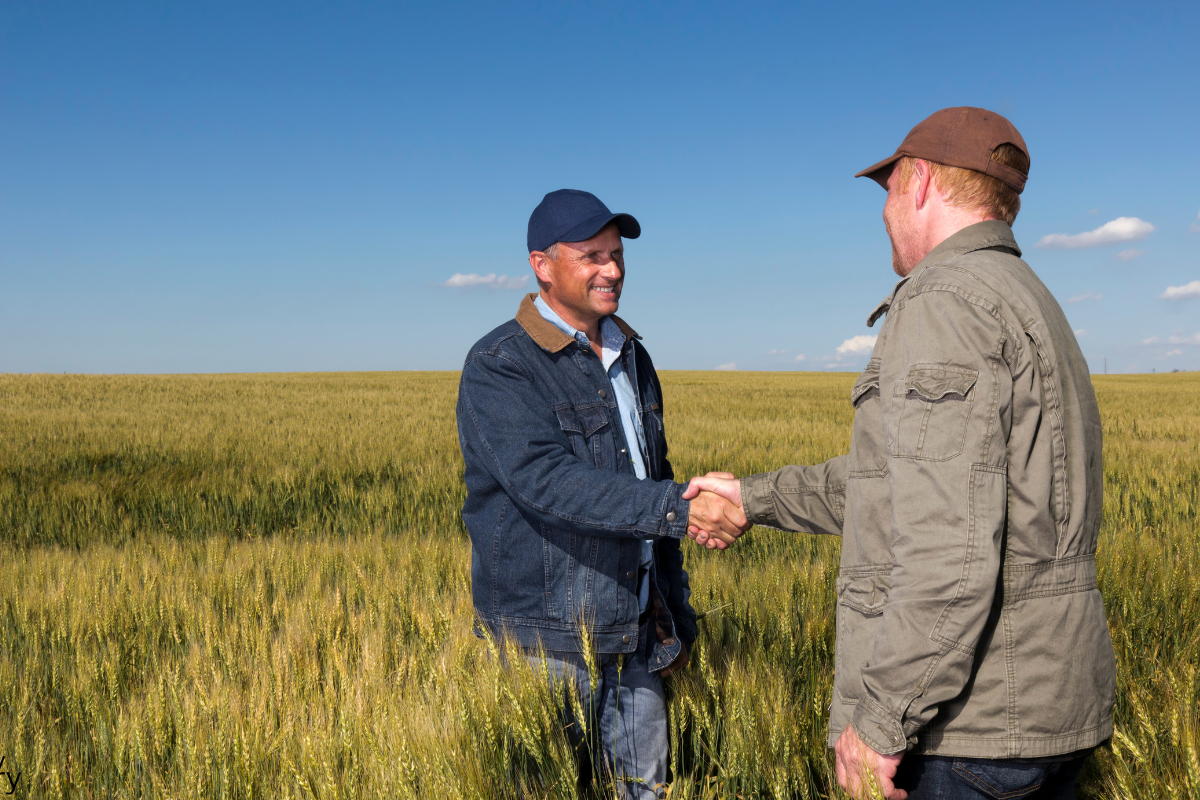
Are you ready for farm succession?
What motivates some farmers to make a succession plan while others don’t seem worried.
The Noble family’s farm is a place where ideas flow freely and are evaluated by all family members — including three children of Bob Noble and Nora Paulovich who are coming back to farm.
It’s a story that’s been years in the making because the pathway for the two daughters and one son to return to the farm was actually laid decades ago, when Bob and Nora made the conscious decision that on their farm in the northern Peace Country in Alberta, they’d build an equal and open farming relationship.
“Mom and Dad were really involved as equals,” says Cara, the middle sibling, who graduated in 2015 from the University of Alberta and is now pursuing her chartered professional accountant designation while working now in Edmonton. “We never thought females would do certain jobs or males would do other jobs. We’ve gone after whatever we have an interest in.”
That’s why the Noble siblings have a hard time identifying what it means to farm together as brother and sisters. It just isn’t an issue.
Jolene has been back to the farm the longest, after spending five years working for the Canadian Cattlemen’s Association and in the grain industry. She also attended the University of Alberta.
“I was in the thick of the agriculture industry,” says Jolene. “I did enjoy it, but nothing comes close (to farming) for being able to learn new information and assimilate it and apply it to your own operation, and see you make your own progress.”
Jolene spends most of her time with the cattle herd, currently at about 160 beef cows, and with the forage side of the farm’s business. She says she doesn’t remember a time she wanted to be anything other than a farmer.
Family time was farm time for the Nobles growing up at Jackknife Creek Land and Cattle. Spending time planting and harvesting crops, or touring pastures in the pickup truck checking cattle, are good memories and they continue to influence the children’s decision to return home.
“We all have a passion for agriculture,” says Lee, the youngest, who graduated from the University of Alberta in 2017 with an agriculture and resource economics degree and immediately returned to the farm. “That passion was built at a young age and that’s why we’re coming back.”
The farm has set a priority on soil health, with increasing use of cover crops to improve the soil and to provide extended grazing options for the beef herd. Their mother, Nora, is the manager of the North Peace Applied Research Association and has brought in soil health experts to speak at events in Alberta from across North America.
“We do believe we are making some improvements in soil health and in the organic matter in our soil,” says Jolene.
Lee is the more mechanically minded of the siblings and spends more of his time in the cropping side of the business. He’ll also work during the winter in the oil field until the farm expands enough to justify his being full time on the farm all year
The family runs about 2,000 cultivated acres, but that is changing “about every six months,” says Lee, as the family looks to expand its holdings as more of them return home.
The children are buying land — still affordable at approximately $2,000 per acre in the remote area in northern Alberta where they live. The price means young farmers “can still kind of squeak by and build something,” says Jolene. “It would be difficult if we didn’t have a base with Mom and Dad. The dream is still attainable here.”
That doesn’t mean the family isn’t aggressively pursuing ways of adding value to the farm operation without expanding production. They sell beef directly to consumers, sell fencing products for Gallagher, and also sell Union Forage seed.
The Peace River Country is home, and they are farming land homesteaded by their grandfather.
Cara, living in Edmonton, is a six-hour drive away as she develops her accounting career. She hopes one day to move closer and start her own accounting practice, combined with farming. She returns to the farm when she can, on long weekends and for holidays.
Succession is a constant topic of discussion for the family, says Jolene. “With three siblings, there are not really any easy answers as far as tax and structure.”
Their parents are stepping back as Jolene and Lee take on more of the management decisions.
“It’s hard to say on corporate structure. It’s hard to say what the company will look like,” says Jolene.
“We all get along extremely well,” she says. “No one is shy about bringing ideas to the table. For our family, that is a big positive for our operation.”
The future of the farm will be determined with open discussion among the family members. Being siblings means those discussions will be honest.
“The biggest thing is that siblings are the ultimate set of peers,” says Lee. “There are no punches held or anything.”
“The level of honesty you can have with family, you can’t have with anyone else,” says Jolene. “At the end of the day you’re still family.”


